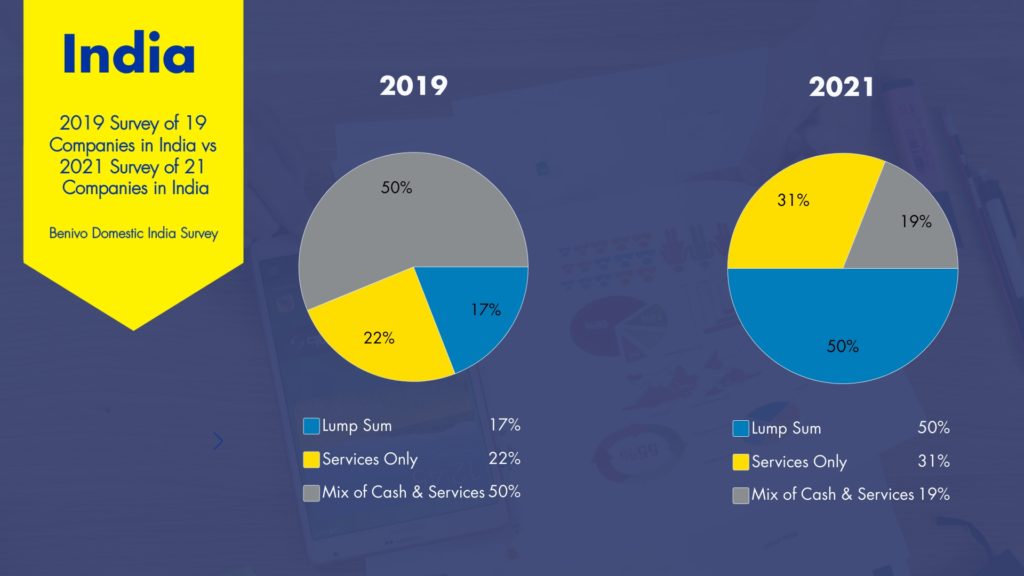
The renewed interest in Global Domestic Mobility is not a new point of conversation, but certainly one that is gaining even more traction in 2022. While international travel restrictions imposed following COVID-19 have eased, many organizations continue to focus their recruitment efforts domestically in search of the best and brightest talent.
And, quite frankly, amid a fierce battle for skilled talent – which is being felt in virtually every industry around the world – it makes good business sense to ensure that domestic policies address country- and city-specific nuances and circumstances to effectively attract talent within each domestic pool. A blanket “domestic” policy can lose its relevance in certain local markets, resulting in benefits that don’t align with local needs, service models that are impractical, and a lack of the right incentives for employees to relocate. Alternatively, domestic policies that are too locally focused can result in disjointed, administratively burdensome mobility processes.
Throughout the pandemic, Weichert’s Advisory and Client Services teams were flooded with questions and requests for guidance in building out a formal set of guidelines for administering domestic moves outside of the US, UK, and Canada – countries where we typically see the most relocation activity. But we were keen to generate some discussion surrounding Global Domestic policy development among our clients in the APAC region, so we hosted a number of corporate roundtables with local contacts.
Here are some of the salient points that came out of these roundtables:
- The key drivers of the focus upon Domestic Global Mobility remain business growth, increasing costs and complexity of international mobility, the need to retain and attract skilled talent, and the drive to meet DE&I objectives. Another notable driver over 2022 will be the shift from a remote to a hybrid work model, which is gaining traction in many APAC markets.
- While there has been great progress towards bringing domestic relocation into global alignment, ownership of domestic relocation in many APAC countries still largely resides with local business, HR, or Centers of Excellence (COEs) in locations either within or even outside APAC.
- The costs associated with domestic relocation programs remain a prime concern at the local business level, punctuated by a lack of acceptance of the business case for outsourcing relocation functions and services. At the same time, more companies across the region are recognizing the role domestic relocation support can play in attracting talent.
- As organizations shift from a phase of COVID pandemic to endemic, there are fears that cost control measures that were implemented 1-2 years ago will now impede talent agility and talent development efforts.
- As a result of COVID, many organizations shifted to Lump Sum programs for moving talent domestically, as evidenced below in India. The downside to cash in lieu of benefits is the lack of oversight and support of transferees, resulting in less-than-positive employee experiences. In fact, 82% of HR Leaders in India reported dissatisfaction with the solutions currently in place for domestic relocation in this country.

- While many developmental assignments were put on hold during the pandemic, there will now be a push to reinstate these programs to help meet talent management objectives, especially as organizations across the APAC region feel the sting of The Great Resignation.
The trends unfolding across the APAC region are consistent with what mobility professionals are seeing in other parts of the world, with mobility assertively taking the stage as a powerful tool in the war for talent. While the costs of relocation are significant, more organizations are recognizing that greater consistency in their Global Domestic Mobility framework can ultimately save money by creating efficiencies in recruitment and program administration, with the overarching goal of building and developing the talent pipeline.
As the world emerges from the worst global health crisis experienced by anyone alive today, so many APAC companies are on the cusp of returning to the growth they were known for, pre-COVID. Recognizing the burgeoning need for highly-skilled talent, coupled with the challenges of hiring globally, we see the sense of urgency to revisit the development of Domestic Relocation policies and programs to ensure that they are relevant, magnetic, and in alignment with the company’s mobility objectives.
Inside Insight from Our Advisory Team
From our extensive research, our global domestic survey, and our roundtables, we see that organizations are recognizing the need for greater consistency and streamlined administration of global domestic policies and programs. It is also evident that companies need special incentives to attract critical talent.
How, then, do organizations achieve these goals and simultaneously create more equity across domestic policies to align with overarching Global Mobility objectives?
Rather than adding new benefits or extending and expanding benefits that result in exceptions to policy and create unwanted precedents, Weichert recommends handling these requirements outside the relocation budget. Instead, mobility can advise the business, based on industry best practices, on how to structure incentive payments when critical milestones are met. This strategy not only encourages relocation acceptance but also helps secure the company’s investment over the long term.